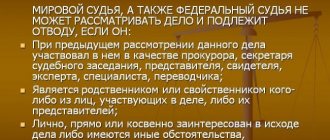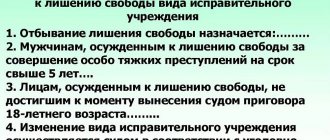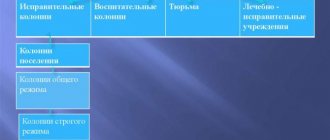1. The length of working hours for those sentenced to imprisonment, the rules of labor protection, safety precautions and industrial sanitation are established in accordance with the labor legislation of the Russian Federation. The start and end times of work (shifts) are determined by shift schedules established by the administration of the correctional institution in agreement with the administration of the enterprise where the convicts work.
2. Taking into account the nature of the work performed by convicts held in correctional institutions and prisons, cumulative recording of working time is allowed.
3. The time when convicted persons are involved in paid work is counted towards their total length of service. The accounting of time worked is assigned to the administration of the correctional institution and is carried out based on the results of the calendar year. If a convicted person systematically evades work, the corresponding period of time is excluded by decision of the administration of the correctional institution from his total work experience. The decision of the administration of the correctional institution can be appealed by the convicted person in court. 4. Working convicts have the right to annual paid leave: lasting 18 working days - for those serving imprisonment in educational colonies; 12 working days - for those serving imprisonment in other correctional institutions. These vacations are granted with or without travel outside the correctional institution in accordance with Article 97 of this Code. The time spent by a convicted person in a cell-type premises, single cell-type premises and solitary confinement does not count towards the period required for the provision of annual paid leave.
5. Convicts who exceed production standards or exemplarily fulfill established tasks in heavy work, as well as in work with harmful or dangerous working conditions, in enterprises located in the regions of the Far North and equivalent areas, or convicts who work at will and are disabled of the first or second group, for convicted men over 60 years of age and convicted women over 55 years of age, the duration of annual paid leave can be increased to 18 working days, and for convicted minors - up to 24 working days.
Article 103 of the Penal Code of the Russian Federation. Attracting to work those sentenced to imprisonment
- Every person sentenced to imprisonment is required to work in places and jobs determined by the administration of correctional institutions. The administration of correctional institutions is obliged to attract convicts to work, taking into account their gender, age, ability to work, state of health and, if possible, specialty, as well as based on the availability of jobs. Convicts are involved in work in labor adaptation centers for convicts and production (labor) workshops of correctional institutions, at federal state unitary enterprises of the penal system and in organizations of other organizational and legal forms located on the territories of correctional institutions and (or) outside them, provided ensuring proper protection and isolation of convicts.
- Convicted men over 60 years of age and convicted women over 55 years of age, as well as convicts who are disabled people of the first or second group, are involved in work at their request in accordance with the legislation of the Russian Federation on labor and the legislation of the Russian Federation on the social protection of disabled people. Convicted minors are involved in labor in accordance with the labor legislation of the Russian Federation.
- The work of convicts serving imprisonment in prisons in accordance with part seven of Article 74 of this Code is organized only on the territory of the prison.
- The list of jobs in which the use of convicts’ labor is prohibited is established by the Internal Regulations of Correctional Institutions.
- The production activities of convicts should not interfere with the fulfillment of the main task of correctional institutions - the correction of convicts.
- Convicts are prohibited from stopping work to resolve labor conflicts. Refusal to work or termination of work is a malicious violation of the established procedure for serving a sentence and may lead to the application of penalties and financial liability.
Article 104 of the Penal Code of the Russian Federation. Working conditions for prisoners sentenced to imprisonment
- The length of working hours for those sentenced to imprisonment, the rules of labor protection, safety precautions and industrial sanitation are established in accordance with the labor legislation of the Russian Federation. The start and end times of work (shifts) are determined by shift schedules established by the administration of the correctional institution in agreement with the administration of the enterprise where the convicts work.
- Taking into account the nature of the work performed by convicts held in correctional institutions and prisons, cumulative recording of working time is allowed.
- The time convicts are involved in paid work is counted towards their total length of service. The accounting of time worked is assigned to the administration of the correctional institution and is carried out based on the results of the calendar year. If a convicted person systematically evades work, the corresponding period of time is excluded by decision of the administration of the correctional institution from his total work experience. The decision of the administration of the correctional institution can be appealed by the convicted person in court.
- Working convicts have the right to annual paid leave: lasting 18 working days - for those serving imprisonment in educational colonies; 12 working days - for those serving imprisonment in other correctional institutions. These vacations are granted with or without travel outside the correctional institution in accordance with Article 97 of this Code. The time spent by a convicted person in a cell-type premises, single cell-type premises and solitary confinement does not count towards the period required for the provision of annual paid leave.
- Convicts who exceed production standards or exemplarily fulfill established tasks in heavy work, as well as in work with harmful or dangerous working conditions, in enterprises located in the regions of the Far North and equivalent areas, or convicts working at will, who are disabled first or of the second group, for convicted men over 60 years of age and convicted women over 55 years of age, the duration of annual paid leave can be increased to 18 working days, and for convicted minors - up to 24 working days.
Article 178 of the Penal Code of the Russian Federation. Monitoring compliance with the terms of deferment of serving a sentence
- If a convicted person, to whom a deferred sentence has been applied, evades raising and caring for a child, the penitentiary inspectorate issues a warning.
- If the convict has abandoned the child or continues, after an announced warning, to evade raising and caring for the child, the penal inspection at the place of his residence submits to the court a proposal to cancel the deferment of serving the sentence and to send the convict to serve the sentence imposed by the court verdict. . A copy of the court ruling on deferment of serving the sentence is attached to the submission.
- A convicted person is considered to be evading raising a child if he, without officially abandoning the child, left him in a maternity hospital or transferred him to an orphanage, or leads an antisocial lifestyle and does not raise and care for the child, or left the child to relatives or other persons, either disappeared or commits other actions indicating evasion from raising the child.
- When a child reaches fourteen years of age or in the event of the death of a child, the criminal-executive inspection at the place of residence of the convicted person, taking into account the nature and degree of social danger of the crime committed, the behavior of the convicted person, his attitude towards raising the child, the terms of the sentence served and not served, sends to the court a proposal for the release of the convicted person from serving the sentence or the remaining part of the sentence or to replace the remaining unserved part of the sentence with a more lenient type of punishment.
- If the convicted person complies with the terms of deferment of serving the sentence and its correction, the criminal-executive inspection submits to the court a proposal to reduce the period of deferment of serving the sentence and to release the convicted person from serving the sentence or the remaining part of the sentence with the criminal record expunged. In this case, the said submission cannot be made before the expiration of a period equal to the term of the sentence, the serving of which was suspended.
Article 105 of the Penal Code of the Russian Federation. Remuneration for those sentenced to imprisonment
- Those sentenced to imprisonment have the right to wages in accordance with the labor legislation of the Russian Federation.
- The amount of remuneration for convicts who have worked the full monthly standard of working time and fulfilled the standard established for them cannot be lower than the established minimum wage.
- Payment for the work of a convicted person for part-time or part-time work is made in proportion to the time worked by the convicted person or depending on output.
Article 174 of the Penal Code of the Russian Federation. Release of convicted military personnel from serving their sentences
- Convicted military personnel serving a restriction on military service, arrest or detention in a disciplinary military unit are exempt from further serving their sentence in the event of an illness that makes them unfit for military service. The unserved part of the sentence may be replaced by a more lenient punishment.
- Convicted military personnel serving a sentence during military service, in the event of other grounds for dismissal from military service provided for by the legislation of the Russian Federation, may, in accordance with the established procedure, be early released by the court from punishment with the replacement of the unserved part of the punishment with a more lenient type of punishment or without it.
Article 106 of the Penal Code of the Russian Federation. Involving prisoners sentenced to imprisonment in work without pay
- Persons sentenced to imprisonment may be involved without pay only in carrying out work to improve correctional institutions and adjacent areas.
- Convicts who are disabled people of the first or second group, convicted men over 60 years of age, convicted women over 55 years of age, and convicted pregnant women are involved in work without pay at their request.
- Convicts are involved in the specified work in order of priority in their free time, their duration should not exceed two hours a week. The duration of work can be increased upon the written application of the convicted person or, if urgent work is necessary, by a resolution of the head of the correctional institution.
Article 107 of the Penal Code of the Russian Federation. Deductions from wages and other income of persons sentenced to imprisonment
- Deductions are made from the wages, pensions and other income of those sentenced to imprisonment to reimburse the costs of their maintenance in accordance with part four of Article 99 of this Code.
- Reimbursement by convicted persons of expenses for their maintenance is made after satisfying all claims of collectors in the manner established by Federal Law of October 2, 2007 N 229-FZ “On Enforcement Proceedings”.
- In correctional institutions, regardless of all deductions, at least 25 percent of their accrued wages, pensions or other income is credited to the personal account of convicts, and to the personal account of convicted men over 60 years of age, convicted women over 55 years of age, convicts who are disabled people of the first or second group , convicted minors, convicted pregnant women, convicted women with children in children's homes of a correctional institution - at least 50 percent of their accrued wages, pensions or other income.
Article 173 of the Penal Code of the Russian Federation. Termination of serving a sentence and release procedure
- Serving deprivation of the right to hold certain positions or engage in certain activities, compulsory labor, correctional labor, restriction of freedom, forced labor, arrest, imprisonment for a certain period, as well as serving restrictions on military service and detention in a disciplinary military unit are terminated on the last day of the sentence taking into account those changes that can be made to the sentence in accordance with the law.
- Those sentenced to forced labor, arrest and imprisonment for a certain period of time are released in the first half of the last day of the sentence. If the sentence ends on a weekend or holiday, the convicted person is released from serving the sentence on the day before the weekend or holiday. When calculating the term of punishment in months, it expires on the corresponding date of the last month, and if a given month does not have a corresponding date, on the last day of that month.
- Upon release, the convicted person is given things and valuables belonging to him, funds stored on his personal account, personal documents and securities, as well as documents on the release of the convicted person from punishment and documents on his work activity.
- The passport of a person released from forced labor, arrest or imprisonment, his work book and pension certificate, stored in the personal file of the convicted person, are issued to him upon release. If there is no passport, work book or pension certificate in the prisoner’s personal file, as well as if the passport has expired, the administration of the correctional institution takes measures in advance to obtain them. If it is necessary to obtain a new passport, the costs associated with its issuance are deducted from the funds in the personal account of the convicted person. If the convicted person does not have funds in his personal account, the costs associated with the issuance of a new passport are paid at the expense of the state.
- Early release from serving a sentence is carried out on the day of receipt of the relevant court decision, court ruling, act of pardon or a decision approved in the established manner to apply an amnesty act to the convicted person, and if the specified documents are received after the end of the working day - in the morning of the next day (if acts no other provisions are provided for pardon or amnesty). If the received court decision has not entered into legal force and has not been appealed, release from serving the sentence is made on the morning of the day following the day of expiration of the period for appealing the said decision in cassation procedure.
- On the day of the end of the period of correctional labor, and in case of release from this punishment on other grounds, no later than the next working day after receiving the relevant documents, the penal inspection is obliged to propose to the administration of the organization in which the convicted person served correctional labor to stop deductions from his wages. The released person is issued a document confirming the completion of the sentence or release from it.
- A convicted person released from serving a sentence due to the reversal of a sentence in connection with the termination of a criminal case is explained by the head of the institution or body executing the sentence of his rights to the restoration of property, labor, housing and other rights lost while serving the sentence. In the release document, an official apology is made to the said convict on behalf of the state.





